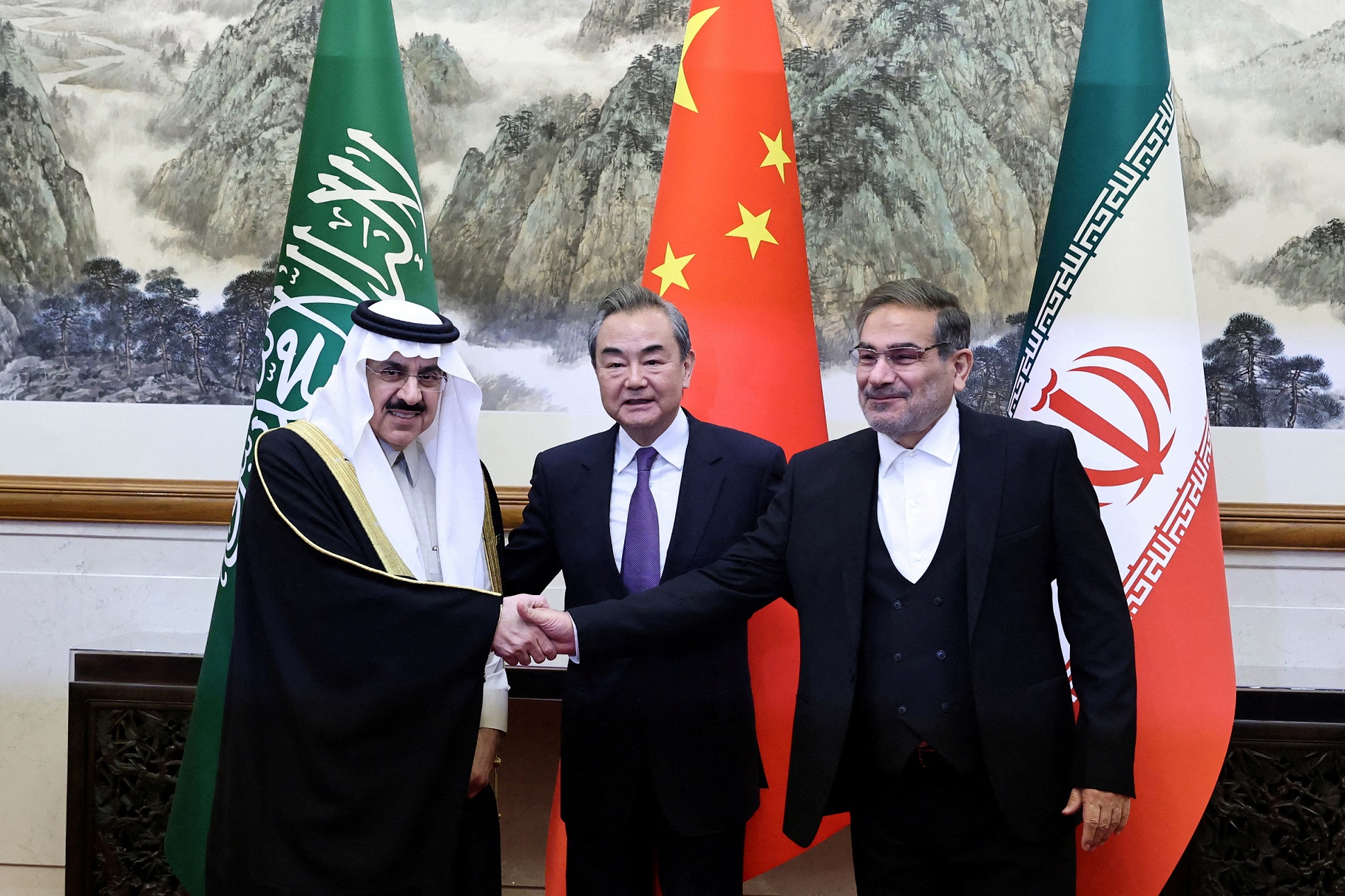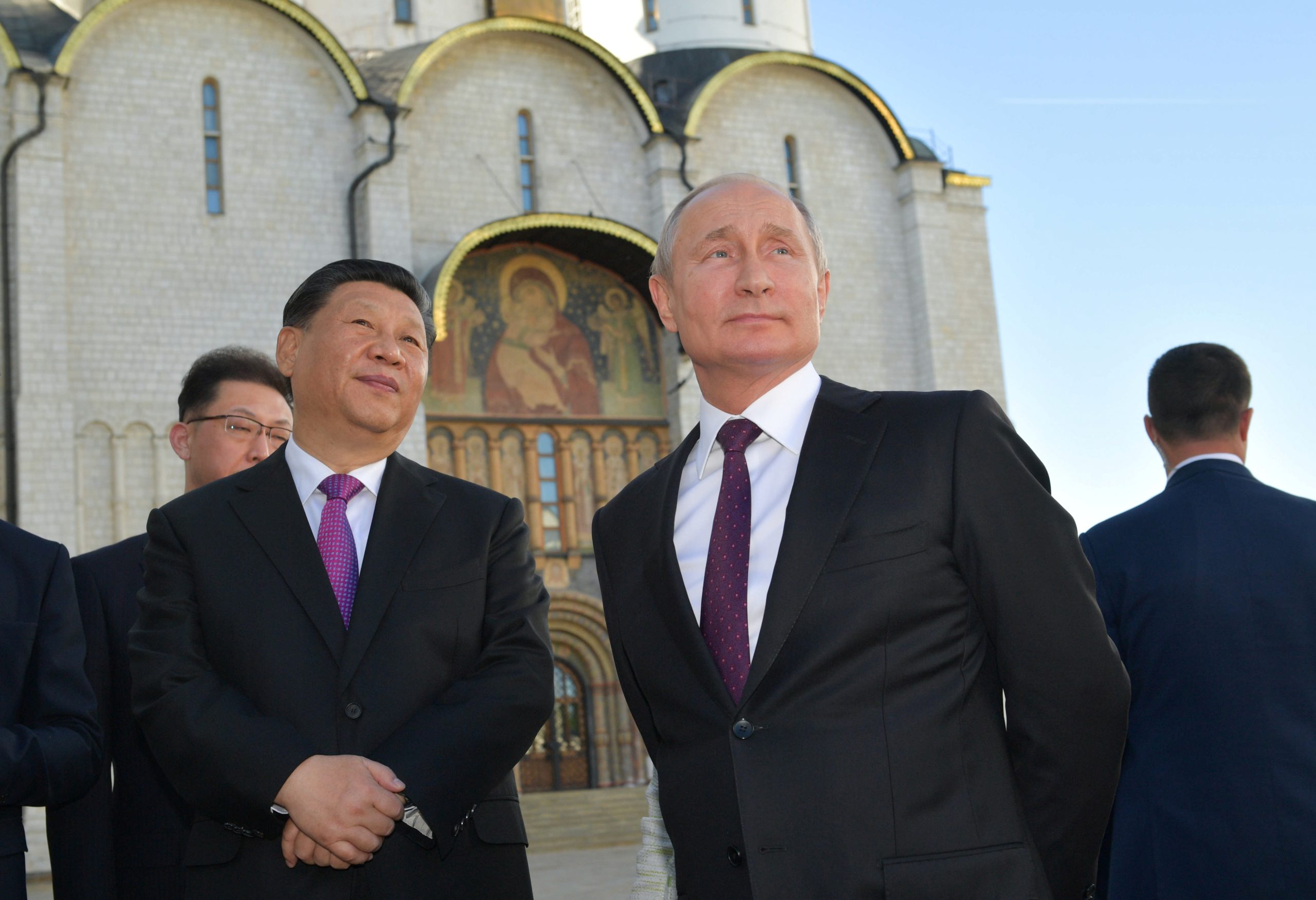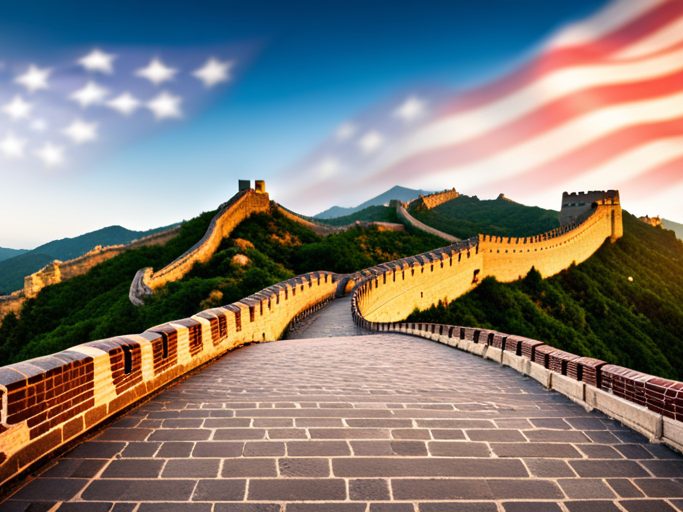Publications
INSS Insight No. 1714, April 24, 2023
Since the start of the final quarter of 2022, China has worked vigorously to extricate itself from the internal crisis brought on by the COVID-19 pandemic and the severe restrictions imposed by the Chinese government in the wake of the pandemic, which led to an economic slowdown and damaged China’s image as an emerging power. China’s image was also harmed by its identification as an ideological, political, economic, and security ally of Russia, the invader of Ukraine. The efforts to rehabilitate its image and weaken the wall that the United States seeks to erect around it are heavily weighted toward diplomatic activity, particularly under the leadership of President Xi Jinping.
The United States, which identifies China as its main strategic rival, took steps to leverage the crisis that struck China following the COVID-19 pandemic in order to tighten the ring round the country, particularly in the Indo-Pacific region, while strengthening its own political, security, and technological relations with its allies in this area, mainly Australia, Japan, and South Korea. At the same time, US attention and efforts have aimed at limiting China’s involvement in economic areas that are linked to the development of advanced technological capabilities. As with security coordination, cooperation with Europe on this matter has increased, fed by the fear of Chinese penetration of the continent and by the ongoing war in Ukraine and its consequences for security, the economy, and demographics. At the same time, American attempts to isolate China under pandemic-related circumstances, as well as the efforts to minimize the prestige that China sought to gain from hosting the 2022 Winter Olympics, and even the attempt to create a political front against China’s treatment of the Uyghur minority only achieved partial and short-term success.
Chinese efforts to restore its international standing actually began on the internal front, with a “Chinese version of the democratic process,” which led what is effectively an unlimited tenure for President Xi. Since then, China has been on the offensive, seeking to breach the US siege by capturing positions in the American strategic space, such as South America, the Middle East and Europe.
In early December 2022, President Xi was received with regal pomp in Saudi Arabia. His hosts, King Salman and his son Mohammed, arranged two meetings for him, in addition to the bilateral meetings, with a number of heads of state in the region, including the President of Egypt and the King of Jordan, and with the heads of the Gulf Cooperation Council. Although the US political, economic, and security presence in the Gulf is several times larger than that of China, President Xi’s visit marked a step up in his country’s involvement in a region that is considered part of the US global strategic set-up the renewal of diplomatic relations between Saudi Arabia and Iran, mediated by a number of countries, including China, is further proof of the growing strength of Chinese influence in a region where China purchases a large part of its energy (40 percent of its oil and 30 percent of its natural gas), and has become the largest exporter there – exceeding the United States and Europe.

There is also an Israeli angle here. On April 17, 2023, the Chinese Foreign Minister called his Israeli and Palestinian counterparts to offer Chinese assistance for talks between the two sides. The Chinese initiative obviously draws on the success of its mediation between Iran and Saudi Arabia, but will meet with reluctance on the part of the Israeli government, which wants to avoid adding a further element to the current tension in its relations with the United States.
The European arena is important to China both for its economic weight and as a central element in the Western strategic alignment, which was originally formed to oppose the Soviet Union but now identifies China as its main rival. China’s efforts to drive a wedge between the United States and Europe have intensified since Xi Jinping came to power in 2012. Huge infrastructure projects are one of the methods to create economic dependency and expand influence. The 16+1 cooperation forum, including countries of Eastern and Central Europe, is another tool used by China to implement its Belt and Road Initiative – projects along the main route of the historic Silk Road and its various branches. The forum, which consisted of 16 countries when it was set up in 2012, was joined by Greece in 2019 but shrank again in 2021 when Lithuania withdrew, due to the moves taken by China to punish it for its consent to open a representative office in the name of Taiwan. A year later, Latvia and Estonia also withdrew from the forum following the declaration by Presidents Vladimir Putin and Xi of the “unlimited friendship” between China and Russia, the menacing neighbor of the Baltic states, formerly members of the Soviet Union.
The European Union is aware of China’s efforts to expand its influence over the decision making processes in EU member states, using carrot and stick tactics. As an organization that upholds the values of democracy and human rights, it also recognizes the differences between China and Europe on all aspects of governance, individual freedoms, and attitudes toward minorities. On the other hand, the European countries cannot ignore China’s economic power, and find themselves engaged in an ongoing struggle to reach a balance between the desire to maintain their sacred values and their economic interests. In the space created by this tension, China tries to exploit the fact that several countries, for example, Hungary, are less concerned about the core principles of the EU and the wishes of its leading member states, mainly France and Germany, to maintain the transatlantic alliance while maintaining “strategic autonomy.”
European “strategic autonomy” returned to the headlines after the visit of French President Emanuel Macron to China in April 2023. Macron said in an interview that the biggest danger facing Europe was the risk of becoming embroiled in a crisis that did not concern it and prevented it from developing an autonomous strategy – clearly referring to the tension between the United States and China around the meeting of the Speaker of the US House of Representatives with the President of Taiwan. Macron added that the worst response would be to act in accordance with the US agenda or China’s over-reaction. The Chinese leadership saw positive signals in Macron’s words, since he did not hide his anger at France’s exclusion from the security pact set up in 2021 by the United States, Britain, and Australia (AUKUS), which inter alia has addressed the inclusion of nuclear-powered submarines in the Australian fleet – a plan that has been strongly criticized by China. On the other hand, Macron himself clarified that strategic autonomy does not mean disputes, and that France and the United States each has its own approach to various matters. As an example of agreement with the United States, he recalled French support for the status quo on the question of Taiwan and freedom of shipping in the Indo-Pacific region, and mentioned the French frigate Prairial, which is deployed there.

The joint announcement delivered at the end of Macron’s visit included reference to the war in Ukraine and the need to find a solution based on the principles of the UN Charter. Macron and the President of the European Commission, who accompanied him to Beijing, tried to dissuade their host from supplying arms to Russia, and presumably this contributed to the response of the Chinese Foreign Minister, who said that his country would not supply weapons to any of the parties fighting in Ukraine. This contrasts to the angry response to the US President and Secretary of State when they asked China to refrain from supplying arms to Russia. It will be interesting to track China’s activity and its ability to influence Iran on the nuclear issue, which was mentioned prominently in the joint announcement by China and France, and see whether France will receive more cooperation from China on this issue than others.
On the question of Taiwan, China perhaps thought it could take advantage of French grievances against the United States, but when German Foreign Minister Annalena Baerbock visited China in April 2023, the hosts tried to fuel relations between the countries and isolate Germany from the United States, based on China’s recognition of the German unification in the wake of the collapse of the Soviet Union in an exchange for German recognition of union with Taiwan. During the visit, Wang Yi, who was Chinese Foreign Minister until a few weeks ago and is now a senior member of the Chinese leadership, said that he hoped and believed that Germany would support a peaceful union with Taiwan, and mentioned that China had supported German reunion (after the collapse of the Soviet Union). He added that the return of Taiwan to China was an important element in the global order after the Second World War.
The senior Chinese official ignored the blunt warning from Baerbock, given at a joint press conference with her Chinese counterpart one day earlier, that war over Taiwan would be a nightmare scenario, with destructive consequences for the whole world. Wang Yi was perhaps relying on Baerbock’s statement that conflicts could only be resolved by peaceful methods, and that any violent and unilateral change of the status quo would not be acceptable in Europe. But Baerbock left no room for doubt regarding Germany’s position, and indirectly the position of most of Europe. China can take comfort in the fact that Europe cannot ignore the data from the World Bank, the International Monetary Fund, and the OECD, which have all estimated China’s rate of economic growth in 2023 at about 5 percent, compared to 1.6 percent in the United States and 0.8 percent in Europe.
These figures led the foreign ministers of the G7, who met in Japan from April 16-18, to express a desire for cooperation with China on the resolution of global problems such as climate change, health security, and economic recovery, together with criticism of China on a series of issues: unfair and competitive economic behavior, the illegal transfer and theft of intellectual property, the attempt to change the status quo in the Indo-Pacific region by force, the erosion in the autonomous status of Hong Kong, and harm to the rights of Tibet and the Uyghurs. The fact that the foreign ministers of seven countries expressed support for the “one China” principle with respect to Taiwan was not enough for Beijing, and they criticized Japan for interfering in China’s internal affairs.
To date, the latest senior figure to visit China was the President of Brazil Lula da Silva, who is also hoping to obtain Chinese economic aid for renewed industrialization and for Chinese companies to take the place of US companies that have decided to abandon Brazil. China considers Brazil to be an important partner, as the largest country in South America and as a member of the BRICS group. The Brazilian President’s invitation of Chinese activity in his country will help China to expand its influence in the region, which in any case contains numerous countries that are hostile to the US, including Cuba, Venezuela, and Nicaragua. In March, China scored a diplomatic victory when Honduras rescinded its recognition of Taiwan, severed relations with it, and instituted diplomatic relations with China.
There may be politicians in Israel who see China’s handling of external pressures applied to it its uncompromising pursuit of national objectives, as defined by the government, as a model of action to be emulated. However, differences in size and capabilities, particularly economic, must be taken into consideration, as well as how China has made other countries dependent on it. Israel must also remember the collective discipline China can achieve with a different system of values and means that have until now been considered unacceptable in Israels society.



